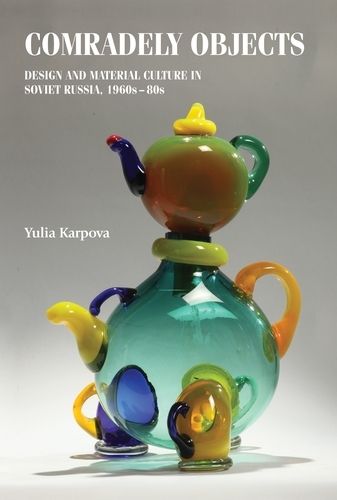Readings Newsletter
Become a Readings Member to make your shopping experience even easier.
Sign in or sign up for free!
You’re not far away from qualifying for FREE standard shipping within Australia
You’ve qualified for FREE standard shipping within Australia
The cart is loading…






The Russian avant-garde of the 1920s is broadly recognised to have been Russia’s first truly original contribution to world culture. In contrast, Soviet design of the post-war period is often dismissed as hack-work and plagiarism that resulted in a shabby world of commodities. This book offers a new perspective on the history of Soviet design by focusing on the notion of the comradely object as an agent of progressive social relations that state-sponsored Soviet design inherited from the avant-garde. It introduces a shared history of domestic objects, hand-made as well as machine made, mass-produced as well as unique, utilitarian as well as challenging the conventional notion of utility. This is a study of post-avant-garde Russian productivism at the intersection of intellectual history, social history and material culture studies, an account attentive to the complexities and contradictions of Soviet design. – .
$9.00 standard shipping within Australia
FREE standard shipping within Australia for orders over $100.00
Express & International shipping calculated at checkout
The Russian avant-garde of the 1920s is broadly recognised to have been Russia’s first truly original contribution to world culture. In contrast, Soviet design of the post-war period is often dismissed as hack-work and plagiarism that resulted in a shabby world of commodities. This book offers a new perspective on the history of Soviet design by focusing on the notion of the comradely object as an agent of progressive social relations that state-sponsored Soviet design inherited from the avant-garde. It introduces a shared history of domestic objects, hand-made as well as machine made, mass-produced as well as unique, utilitarian as well as challenging the conventional notion of utility. This is a study of post-avant-garde Russian productivism at the intersection of intellectual history, social history and material culture studies, an account attentive to the complexities and contradictions of Soviet design. – .